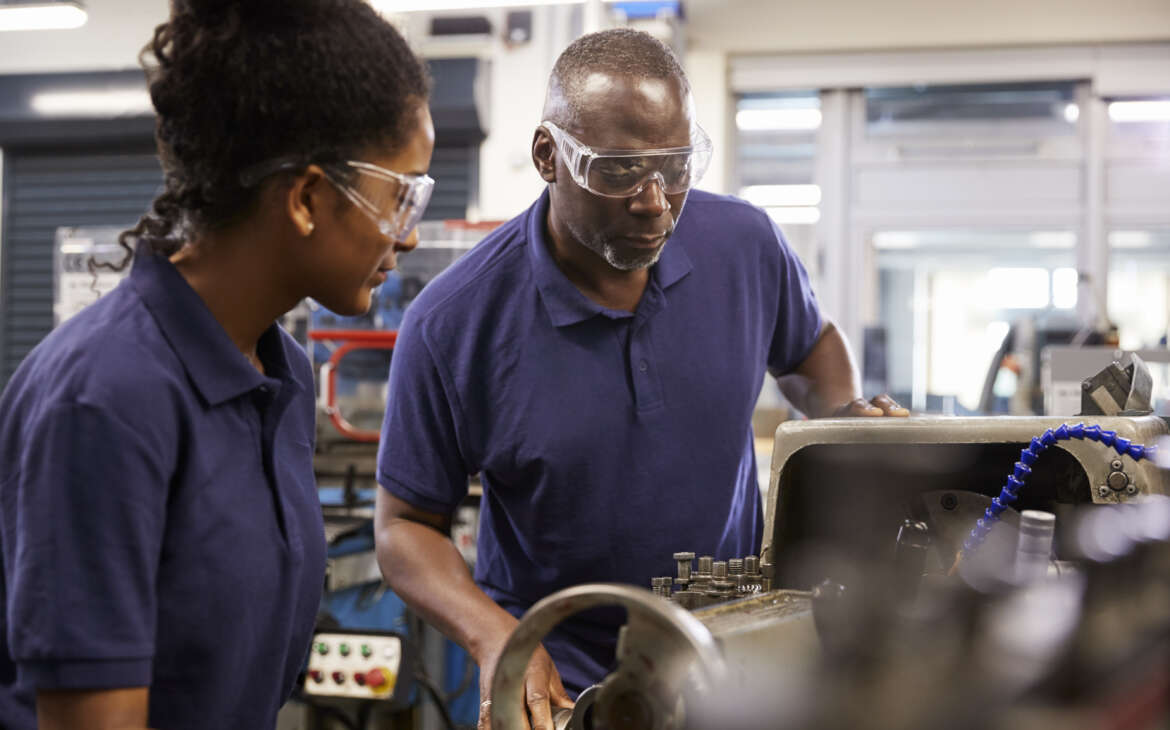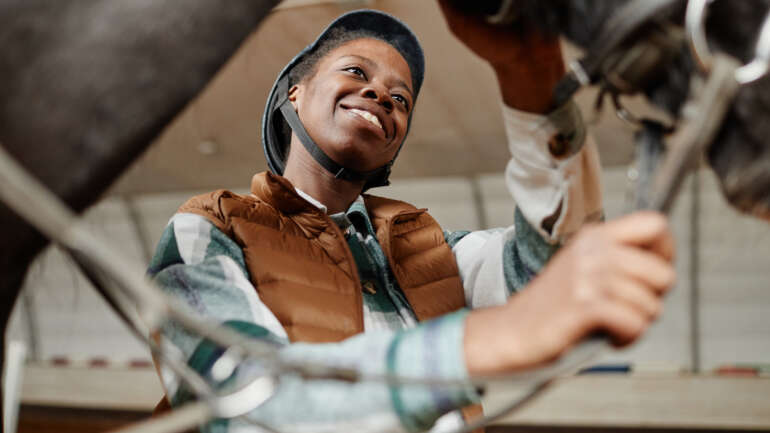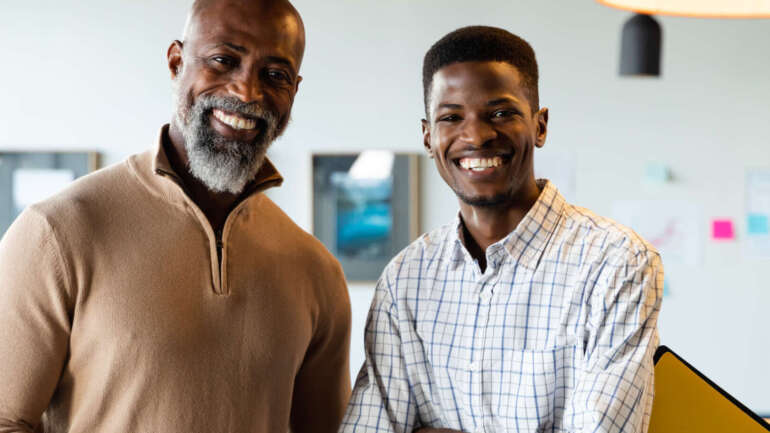When twelve-year-old Kofi received his first scholarship from Future Seeds Foundation in 2018, no one could have predicted that seven years later, he would be funding scholarships for three students from his village.
Yet stories like Kofi’s represent the ultimate metric of our success breaking the cycle of need and creating a new cycle of opportunity and generosity.
At Future Seeds Foundation, we believe that true transformation occurs not when individuals escape poverty, but when they return to lift others along the path they’ve traveled. This commitment to creating community leaders rather than just individual success stories shapes everything we do, from our selection process to our mentorship approach.
The result is a growing network of former beneficiaries who have transformed from receivers of support to providers of opportunity, creating a self-sustaining ecosystem of education and empowerment that extends far beyond our direct investments.
The Return Rate
The numbers tell a compelling story currently, 27% of students who received support from Future Seeds Foundation over the past decade actively contribute to our programs a figure that climbs to 38% among those who have completed higher education.
This return rate significantly exceeds our target of 30% within ten years of program completion and represents a powerful testimony to both the impact of our support and the character of our beneficiaries.
These former students contribute in diverse ways that leverage their unique positions and abilities. Some provide direct financial support, with monthly contributions ranging from 50 to 500 cedis ($4.50-$45 USD).
Others volunteer specialized skills like Abena, a graphic designer who rebuilt our website, or Emmanuel, a teacher who dedicates his Saturdays to tutoring current scholarship recipients. Many return as formal and informal mentors, guiding current students through challenges they themselves once navigated.
The impact of their involvement extends beyond practical contributions. When current beneficiaries see former students returning as professionals and contributors, it transforms abstract possibilities into concrete realities.
As one current student expressed, Seeing someone from my own village, who faced the same challenges I’m facing, return as a university graduate makes me believe it’s possible for me too.
Profile 1: Joseph Mensah
Joseph’s childhood in the Eastern Region was marked by exceptional academic ability and equally exceptional financial hardship. After his father’s death when Joseph was nine, his mother struggled to keep him in school despite his obvious talents.
When Future Seeds Foundation identified Joseph through our rural talent identification program, he was at risk of dropping out despite being top of his class.
With comprehensive support including school fees, supplies, and mentorship, Joseph completed secondary school with distinction and secured admission to the University of Ghana’s medical program. During university, Joseph continued receiving partial support while working part-time to contribute to his education.
Today, Dr. Joseph Mensah serves as a medical officer in a regional hospital and dedicates two weekends monthly to providing free medical screenings in rural communities where Future Seeds operates.
Additionally, he personally funds four full scholarships annually and serves on our scholarship selection committee, where his insight as a former beneficiary proves invaluable in identifying students with both need and potential.
“The support I received wasn’t just financial, it was someone believing in me when circumstances suggested my education was impossible,” Joseph explains. “I’m committed to being that person for others now.”
Profile 2: Akosua Boateng
Unlike Joseph’s straightforward academic journey, Akosua’s path demonstrates the power of vocational training combined with entrepreneurial spirit. Growing up in a fishing community with limited formal education opportunities, Akosua joined our vocational training program focusing on textile arts and business fundamentals at age sixteen.
With natural creativity and determination, Akosua built her small tailoring business into a workshop that now employs seven women from her community.
Her designs incorporating traditional kente patterns with contemporary styles have gained recognition beyond her village, with products now selling in boutiques in Accra and through an online store she manages.
Akosua’s contributions to Future Seeds take a unique form she has established a formal apprenticeship program within her business that prioritizes young women from challenging backgrounds. Through this program, six former Future Seeds beneficiaries have gained marketable skills and subsequent employment.
Additionally, Akosua returns quarterly to lead workshops for our vocational students on business development and financial management, sharing practical wisdom from her entrepreneurial journey.
“I received technical skills, but more importantly, I gained the confidence to believe I could build something meaningful,” Akosua reflects. “That’s what I try to pass on—the belief that their work has value.”
Creating a Culture of Giving
The remarkable return rate among our beneficiaries doesn’t happen by accident, it’s cultivated intentionally throughout the support journey.
From their first day in our programs, students participate in contribution contracts where they commit to specific ways they’ll give back to their communities even while receiving support.
These might include tutoring younger students, participating in community service projects, or sharing knowledge gained through our programs with family members.
This culture continues through our generation chains mentorship model, where current beneficiaries connect with both past participants (who have walked their path) and younger students (who look to them for guidance). This three-generation approach reinforces the expectation that receiving support naturally leads to providing support, creating an unbroken chain of mentorship across cohorts.
Multiplier effect of this approach extends beyond our specific programs. When former beneficiaries return to their communities as educated professionals or successful entrepreneurs, they become powerful change agents influencing community attitudes toward education, gender equality, and economic opportunity.
Besides they establish businesses that employ others, advocate for community improvements, and often become formal or informal leaders whose decisions benefit entire communities. This ripple effect transforms our initial investment in individuals into sustainable community development that persists independently of our continued involvement.
Conclusion
As we look to the future, our vision includes expanding this cycle of giving through a formal Beneficiary Network that connects former students across regions and sectors, creating opportunities for collaboration and amplifying their collective impact.
We invite readers to join this growing community of support whether through financial contributions that initiate new student journeys, professional mentorship that guides current students, or partnerships that create opportunities for program graduates.
Together, we can continue transforming beneficiaries into benefactors who rewrite the narrative of their communities.



